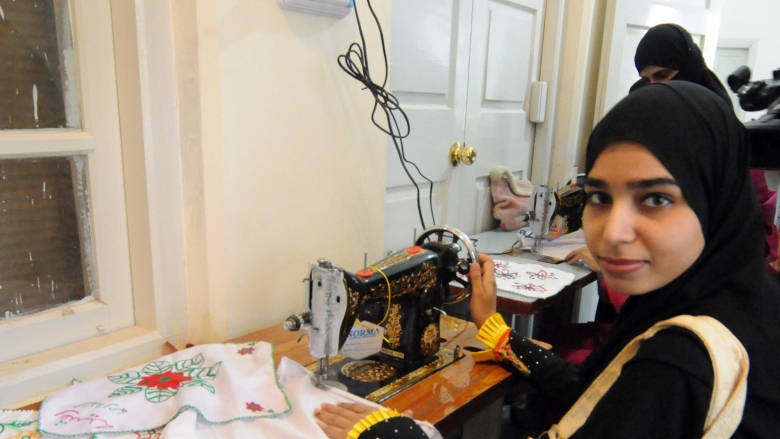Rising costs of apparel manufacturing in China provides a window of opportunity for Pakistan to focus on apparel to productively employ its huge working-age population, especially the women, says the new World Bank report Stitches to Riches? Apparel Employment, Trade and Economic Development launched today In Islamabad.
The report finds, in order for Pakistan to take off on the apparel sector it would be important for the country to address market distortionary trade taxes, and import duties while fostering entrepreneurship and ensuring private sector participation. The government needs to encourage active participation of the youth and the private sector in order to boost apparel manufacturing.
Federal Minister of Commerce, Khurram Dastagir, who was chairing the session said, “Contribution of apparel in Pakistan’s cotton export is just 19%. We export raw materials and semi raw materials, while others convert it into apparel and benefit from it. “
Tackling high tariffs, distortionary measures that signal the wrong incentives to the private sector, and ways to boost women labor force participation were some of the suggestions that came to the fore during a very interactive panel discussion on how to increase the apparel sector’s potential to create jobs.
Illango Patchamuthu, World Bank Country Director for Pakistan said that the private sector should step up their role and come forward to contribute towards boosting the apparel manufacturing.
Discussants also highlighted the lack of skills training for the youth in the country and that with the help of the private sector, the youth could be trained for contributing toward growth and economic development in the country.
Tapping into the global apparel markets was highlighted as an imperative step forward. At the same time it is equally important to attract foreign direct investment, reduce red tape, improve transparency, and foster entrepreneurship. Pakistan should learn from international experience in identifying market niches in apparel and boosting its comparative advantage of excellent raw material, know how of textiles, and a large untapped domestic market.

